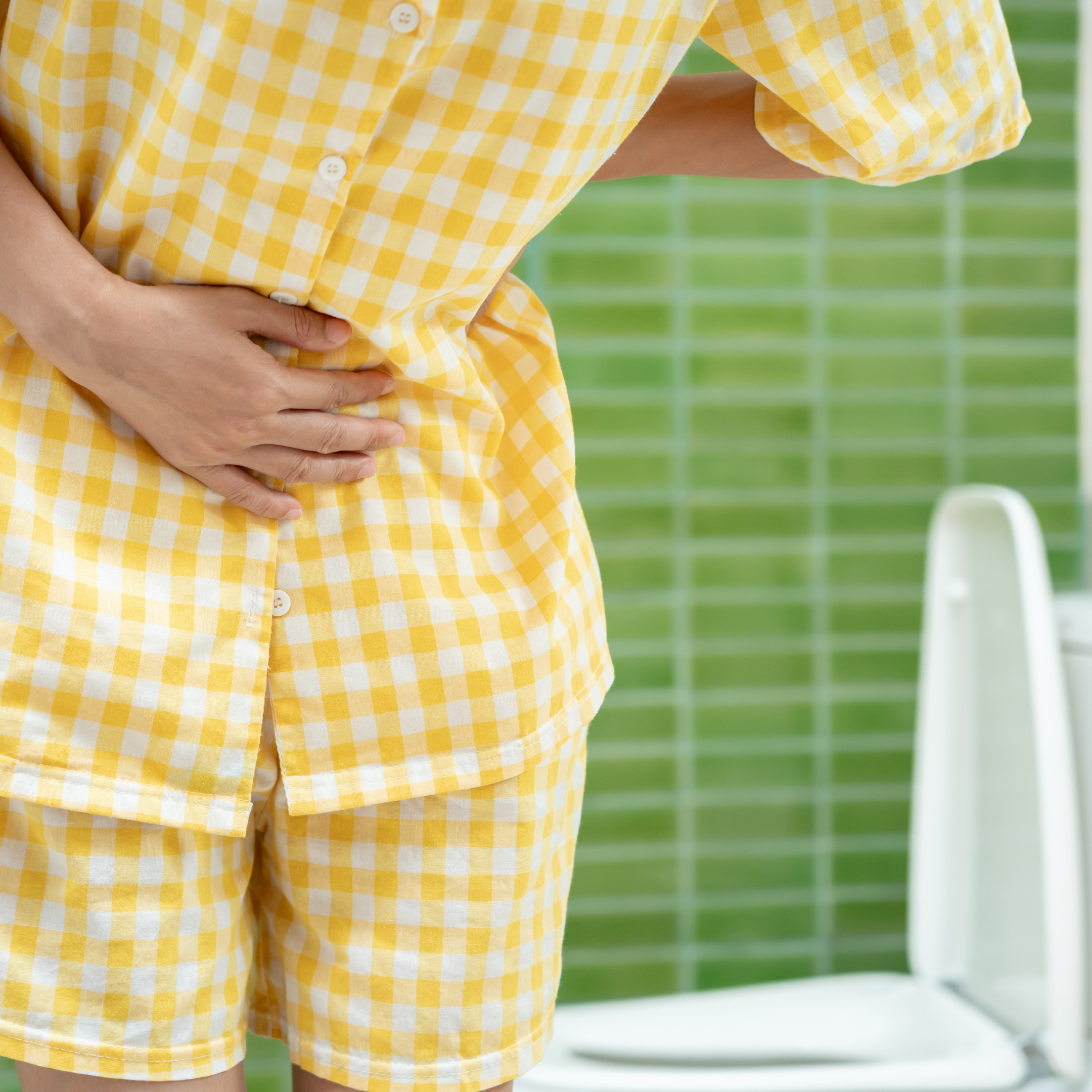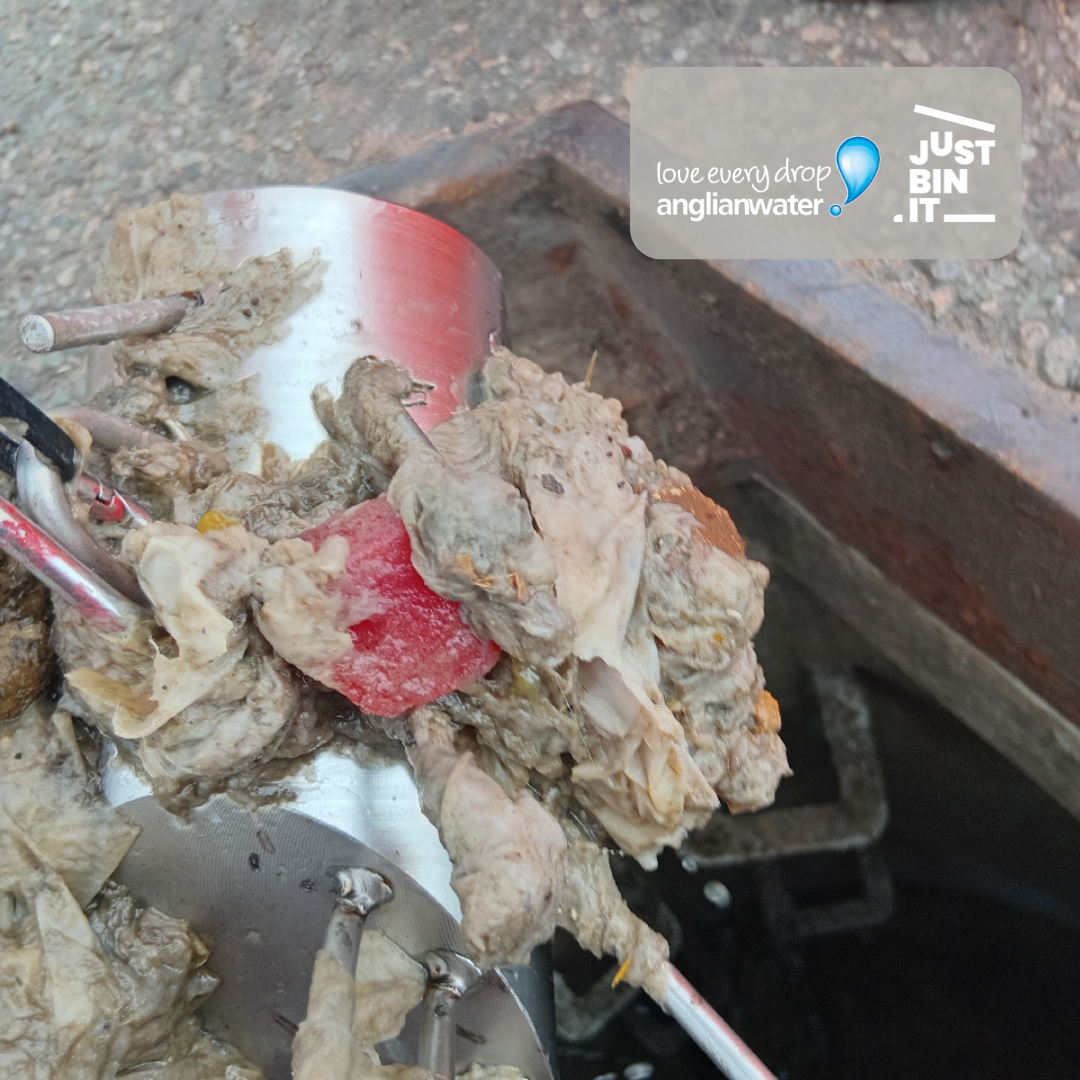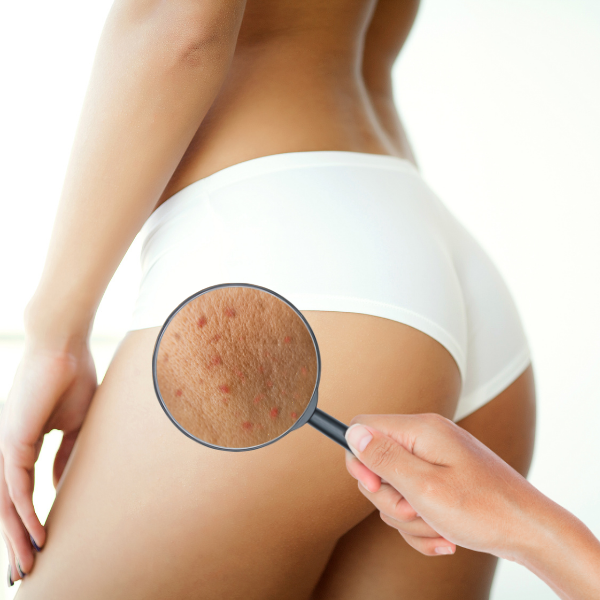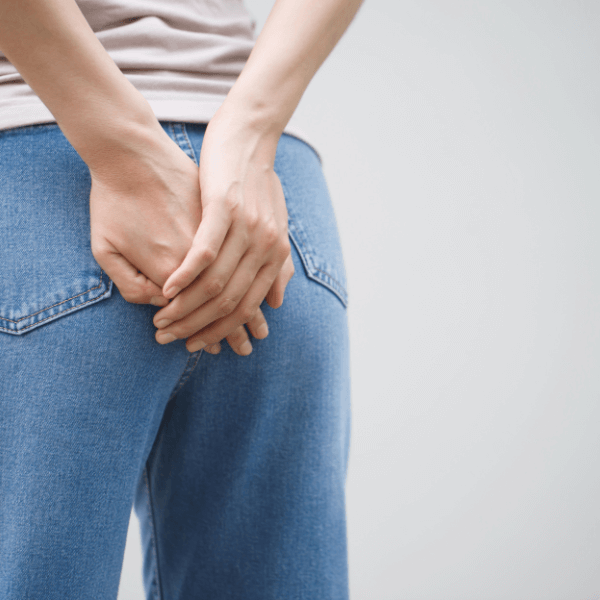Why does it hurt when I poop? 9 Potential Reasons, Symptoms & Solutions

Why does it hurt when I poop? 9 Potential Reasons, Symptoms & Solutions
Relieving your bowels is one of the few true day-to-day essentials in life. No way around it, what goes in, must come out! Taking care of this daily duty is meant to feel good, natural even. Yet – here we are – toes curling, knees hugging the toilet bowl, somehow clenching and releasing at the same time. Is that a cold sweat trickling down our backs, dripping into the bowl, like a teardrop? Why? All because it hurts when we poop.
We spend up to 5767 hours sat on the toilet during our lives, that’s a lot of time spent stone skipping, and even more time for things to get a bit painful. Although 75% of us will experience bottom health issues in our lifetime, the general reticence in talking tushies may leave us unprepared.
We say screw the poo taboo! We’re here to let you in on 9 reasons why you may have a frown...downtown. Even better, we’ll tell you some common causes and treatments too!
(If you’ve found yourself reading this article after a spicy time on the pot followed by a frantic google search, welcome in. Grab a seat, a cushion or two if you need, and let’s dive in!)
The Common Ones
The most common causes of pain when pooping are usually quite simple to treat, and most of the time you can handle them at home.
Constipation
Passing a log is one thing, but let’s not get ahead of ourselves, what if even a woodchip is hard to come by? Constipation is classified when someone is passing less than 3 stools a week.
Symptoms of a faecal traffic jam:
-
Hard, dry, lumpy, difficult to pass stool
-
(Sometimes painful) straining when trying to ‘GO’
-
Feeling full, like you’ve just eaten
-
Feeling blocked, like you still have poop to pass
-
Gas, cramping, bloating, and a deep pain in your gut
Constipation doesn’t see age, it will go for anyone. It will affect 1 in 3 children and 1 in 7 adults in the UK at any given time.
Constipation is usually caused by:
-
Dehydration
-
Lack of fibre
-
Disruption to your routine (e.g. stress, travel)
-
Medication like antibiotics or antidepressants
Treatments:
-
Drink plenty of fluids and reduce alcohol intake
-
Limit highly processed, low-fibre foods
-
Move your body
-
Get plenty of sleep
-
Try a natural stool softener to get things moving once more
Haemorrhoids
Haemorrhoids can make a mucky situation even worse. They’re inflamed, swollen veins on and in the anus that can make toilet time painful and/or bloody.
Haemorrhoid symptoms:
-
Bright red blood on the tissue when wiping
-
Having an itchy bottom
-
Feeling like you still need to go after finishing your business
-
Mucus in your underwear or on toilet paper after wiping
-
Lumps and pain around your anus
-
Soreness when wiping with dry paper alone
Haemorrhoids are usually caused by:
-
Straining during bowel movements
-
Sitting on the toilet for too long (keep to 15 mins max)
-
Pregnancy
-
Obesity
-
Heavy lifting
Haemorrhoids are super common with around 80% of us experiencing them in our lives. They usually resolve on their own within a few days but can come back whenever strained. See here for how to know if you have haemorrhoids.
Treatments/prevention:
-
Drink 8 glasses of water daily
-
Try to consume 30g of fibre daily
-
Soothe your bottom with a warm bath and/or ice
-
Calm swelling by applying witch hazel
-
Keep wiping gentle with a soothing toilet paper gel
-
Surgical removal by a medical professional (in extreme cases)
Anal Fissures
Anal fissures are small tears in the lining of the anus. They can rip all the fun out of toilet time, leading to stress mechanisms messing up the whole pooping process.
Some symptoms of anal fissures are:
-
A sharp pain when you poop
-
A deep burning sensation after you poop
-
General anal itchiness/soreness
-
Bright blood in your stool or on your toilet paper
Anal fissures are usually caused by:
-
Passing large or hard stools
-
Intimate activities
-
Childbirth
-
Stretching of the anal canal
When left alone, fissures will usually heal themselves within four to six weeks. If not, it’s always good to chat with a health professional.
Treatments:
-
Apply a soothing & moisturising gel around the anus
-
Take frequent sitz baths
-
Use natural stool softeners to make pooping easy
-
Drink plenty of water and eat a more fibrous diet
The Irritating Ones
Sometimes it’s not quite a persistent pain, but more so an irritating itch or steady soreness. The skin on our bottom is extremely delicate, and when the precious balance is thrown off, our skin can end up throwing a strop.
Skin Conditions
Pestered by psoriasis, eczema, or warts? These conditions can also affect the skin around your anus, resulting in painful poops.
Symptoms:
-
Pain before, while, after you poop
-
Itching and bleeding around the anus
-
If your discomfort persists for more than a couple weeks, talk to a doctor about treatment options
Treatments:
-
Medications
-
Topical creams
-
Allergen tests
-
Using a gentle, hypoallergenic gel to clean up down there
Infections
Infections come in all shapes and sizes, with different symptoms. They can cause bleeding, discharge, and pain before, during, and after you poop.
These include:
-
An anal abscess (aka fistula/pus pocket) near your anus or rectum
-
A fungal infection, such as an anal yeast infection
-
Sexually Transmitted Infections (STIs) like chlamydia, herpes, gonorrhoea, or syphilis
Talk to a doctor if your symptoms and discomfort don’t clear up on their own.
Treatments can include:
-
Medications
-
Topical creams
-
STI Testing
-
Surgery (for a deep abscess)
Proctitis and Pruritis Ani
Proctitis refers to inflammation of the mucosal lining of your rectum, while pruritis ani is the inflammation of the outer anus (itchy bottom).
Some symptoms are:
-
Anal itching and burning
-
Rectal bleeding
-
Smelly discharge
-
Loose stools or diarrhoea
-
Constipation
-
Swollen lymph nodes in the groin
Both proctitis and pruritis ani have various causes, ranging from lifestyle choices such as diet, stress, and intimate play to infections. Your doctor may perform a rectal test, stool test, or blood test to check for signs of infection.
Treatments, depending on the cause of inflammation, may rely on a mixture of medicines and long-term changes to diet and lifestyle.
The Invisible ones
A huge setback when it comes to addressing our bottom health issues is that you can’t always see when someone is suffering. We’re well on our way to these conditions being taken more seriously and treated in the right ways, but there’s still a long way to go socially. If you know someone who might be suffering with an invisible illness, why not reach out and see how they are or how you can support them?
Irritable Bowel Syndrome
IBS, or irritable bowel syndrome, is the abnormal contraction of the colon. There is no one thing that triggers IBS and everyone is different. However, there are some overarching symptoms and links.
Some symptoms of IBS are:
-
Abdominal pain
-
Constipation (IBS-C)
-
Diarrhoea (IBS-D)
-
Bloating
-
The urgent need to open your bowels
IBS is often linked to:
-
Food passing through your gut too quickly or too slowly
-
Oversensitivity in the gut
-
Specific foods
-
Stress
-
Family history of IBS
Managing IBS requires a lot of patience, personal awareness, and consistency, which is annoying. Nobody wants to constantly inspect what’s causing their gut issues, but it can really help to handle daily life with IBS.
Treatments:
-
Try a low FODMAP diet
-
Keep a food diary to track what triggers your flare ups
-
Manage your stress, and avoid stressful triggers where possible
Inflammatory Bowel Disease: Ulcerative Colitis
Ulcerative colitis is an autoimmune disease that causes inflammation in the lining of the large intestine (colon) and rectum that can lead to ulcers or open sores.
Some symptoms ulcerative colitis:
-
Blood in the stool
-
Abdominal pain
-
Cramps
-
Diarrhoea
-
Mouth ulcers with no clear cause
-
Other discomforts while on the porcelain throne
This is a rarer disease, however with more research, 50% more people are being diagnosed with IBD every year, getting the answers to their invisible – yet very real – condition.
Ulcerative colitis can be triggered by:
-
Abnormal immune response
-
Genetics
-
Stress
Unfortunately, IBD does not yet have a known cure, and while it can be handled with treatment, it is a chronic disease that will last for life.
Treatments:
-
Anti-inflammatory, anti-diarrheal, antispasmodic medications
-
Infusion therapies
-
Supplements and pain relievers
-
Surgery (proctocolectomy)
Colon cancer
Hold Up – we'll preface this part by saying painful bowel movements are usually a symptom of something much less serious than colon cancer, but it’s worth being cautious. Just in case.
Some symptoms of colon cancer are:
-
Abdominal pain
-
Unusual weight loss
-
Bloody stool
-
Constipation
-
Narrow stools
More young people than ever before are at risk of developing colorectal cancer. Between the early 1990s and 2018, the number of adults aged 25 to 49 being diagnosed with bowel cancer increased by 22% in the UK. So be sure to check your poo and get to know what's going on below the waist!
Colon cancer risk factors:
-
Low-fibre, high-fat diets
-
Excessive alcohol consumption
-
Tobacco use
-
Obesity
If you feel that something isn’t right when you poop, contact your doctor. There is NOTHING to be ashamed of, walk in with your head held high, and explain what is worrying you.
Treatments:
-
Colonoscopy (for diagnosis and biopsy)
-
Surgery
-
Radiation therapy
-
Medicines such as chemotherapy
How To Make Pooping Less Painful
So, you know that it hurts when you poop, you also have some idea of what it might be. Now’s the hard part. DON’T PANIC!
Our bowels love a bit of consistency–regular sleep, plenty of water, low-processed foods, minimal stress and a high fibre diet can do well for a hurting bottom. Any curveball such as starting new medication or traveling to a new time zone can disrupt how your body processes food and how you pass poop.
Here’s what to try when nature’s call becomes a painful ordeal
Instant relief:
-
Apply Wype’s soothing gel to irritated skin
-
Soak your bottom in warm water/sitz baths
-
Make use of natural stool softeners
Long-term relief:
-
Drink plenty of water
-
Eat a diet rich in fibrous foods (wholemeal, fruits, nuts, seeds, pulses)
-
Limit inflammatory foods such as fizzy drinks and sweet drinks, fried food, red meat and ultra-high processed foods
-
Get plenty of sleep
-
Implement a stress-relief practice
When to see a doctor
If you’re experiencing persistent rectal bleeding, your poo has been softer, thinner or longer than normal for 3 weeks or you're in a lot of pain around the bottom, it's always a good idea to go and have a chat with a medical professional. It's better to be safe than sore-y!
If you’re tired of the discomfort, straining, and bloating, you can always speak to a health professional to identify lifestyle changes that could dramatically improve your quality of life. Simple changes can oftentimes turn poo time back into you time!
Want to take back the reins when it comes to sitting on the porcelain throne? Wype’s soothing and moisturising toilet paper gel helps to reduce inflammation and irritations, cool burning sensations and clean gently yet effectively so you can rest assured you’re keeping comfortably clean, no matter what mother nature throws your way.



Love using Wype. I suffer from IBS, much better after having probiotic drink once a day and eating fresh figs (if you can get them) or dried figs and prunes
Excellent article and excellent product!
Brilliantly informative as always. There is also microscopic/lymphocytic colitis which is not mentioned. It’s different to ulcerative colitis and is diagnosed only via a biopsy. It would be good to include that on the list, too. Really well done on the fabulous work you do to help raise awareness and support. Huge thanks.
I have bought your Wipe products starter box. It’s great, so easy to use, and great value for money. Thanks for the plain speaking guide to going for a poo. And for the plain talking about something every human does.
Brilliant and informative article. And I use wipe a lot!
I was expecting to see Divercolosis in the list. I go between 4 -11 times a day depending if playing up. I try pro biotics to alleviate it.
Great article about what is sometimes a taboo subject, but after all we all poo! We all need to be more open. I spend many happy times on my toilet and using Wype has added greatly to this most satisfying experience.
Thanks for the no nonsense clear and comprehensive info.
Helpful reading thanks. One thing that has helped me is taking care of my gut health and immune system. I’ve used both drinks and powders which contain live cultures, pre biotic fibres, enzymes and vitamins/ minerals.